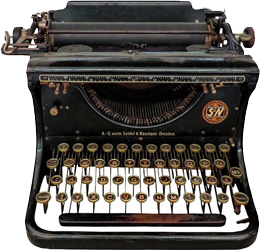March 28 – Following early registration and an optional writing workshop last night, the first full day of the conference began today. Panels, scheduled in 45-minute sessions with a 30-minute break between each session, started at noon. I selected two, Researching the Perfect Crime and What I Wish I Had Known When I Started, but because I could not be in two places at the same time, I chose the research panel and Rachel covered the other for me.
The panelists were Patricia Dusenbury (moderator), Vince Keenan, Ann Parker (Lefty nomination for Best Historical Mystery), and Judy Penz Sheluk. Each author cautioned against not getting too far down the rabbit hole when doing research for your novel. I’ve listed highlights and suggestions provided by each panel member, but any errors or inconsistencies are due entirely to faulty notetaking and/or memory on my part.
Vince
- Stick to primary sources, pick one or two and focus on those – you can’t read everything
- Find a real person who worked for about 50 years and whose life is well-documented, you will never run out of material (lots of laughter here)
- Try to stay faithful to the historical record and what people think the historical record is, keeping in mind that you almost certainly will get something wrong
- Objects (clothing, for example) from the past are very important
- Google, Wikipedia, and other similar sites have made research more difficult because so much misinformation is available, watch for identical sentences appearing in different sources
- Look at all the facts and then use Google to determine what is commonly accessible, then use the one you have to drill down the most to find
Ann
- Pick your facts carefully and know when to break/twist your story
- Your research is bounded by deadlines, at some point you have to write
- Many online sources are available in free downloads
- Looks for historical things that are “shiny” and catch her attention
- Steal a little from what actually happened in the past, likes to write in the shadow of real historical events, loves to find a gap in the historical record because you can make up anything
- A critique group can be helpful when deciding how much detail and when to move on
- Worries about what will be left of us in the electronic generation, will we disappear
- Asks “what would my character notice?”
Judy
- Don’t let research be like getting on Facebook and never getting off
- Much easier to include facts when you ask questions of experts in the field, remember that people like to talk about themselves
- Don’t be surprised if you collect a lot of information but only use a fraction, maybe just a few paragraphs, in the book
- Aim for authenticity
- Likes to learn something when she reads
- Research leads to being able to use a piece of information that would otherwise be useless
- She hasn’t gotten anything wrong yet (lots of laughter here)
- Uses details that interest her the most
Patricia
- Learn things that will inform your story, watch for the “Oh, my God, this is awful, but it’s going to be great in the book” moment
- Picks one detail out of hundreds to include in the book by going with what appeals to her
We’re off to a rousing start!
